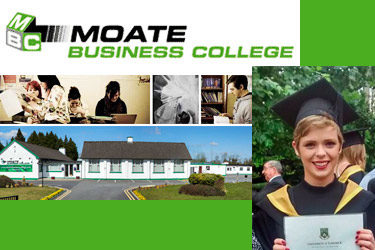Advancing Skills – Apprenticeship Opportunities

Third level education is viewed as the conventional route towards a successful career. However there are other routes to fulfilling careers. The National Skills Strategy brings an alternative path to career options by setting ambitious goals. These include 50,000 training and apprenticeship places before the decade’s end. Bringing the vocational and apprenticeship path into the 21st century will align Ireland with other countries who have established high status vocational options in education.
Historically, Irish apprenticeships have been mostly within the construction sector, however in recent years efforts have been made to diversify across a wide range of industries and sectors. A full list of these is available here: List of Apprenticeships in Ireland
The overhaul of the system is timely considering that a recent report showed that approximately one in six students are not progressing beyond the first year of third level education. While there has always been a very high level of successful graduates from third level, over 40% of them are working in areas unrelated to their chosen college course.
At the same time, in a thriving economy, there is a growing emphasis on skills to meet growing demands. Widening the scope of the apprenticeship and vocational options will be one strand that can provide attractive opportunities in areas such as IT, Science and Engineering.
There is significant input and support from industry in the updated apprenticeship structure and the NFQ levels attained provide access routes back into education for the students following completion of apprenticeship if required.
SOLAS are hoping that apprenticeships, by giving students learning and work experience, will result in a reduction of ‘dropouts’ from college. Guidance counselling will be critical in schools to encourage the take up of the new opportunities. In the short term, an extra two hours per week per 100 students is to be implemented.
Apprenticeship Opportunities
Apprenticeships are associated with practical and technical careers in various areas: engineering, motoring, construction, electrical and printing. This year, new apprenticeships across 25 industry sectors will be launched. Software development, catering, travel, medical devices, warehousing, and plastics are just some of the options available. Apprenticeships will also be on offer at third-level as well as training and further education establishments.
Apprenticeship vs College
Many of the new apprenticeships will include college-based lectures. The higher education pathways will have intensive off job training, therefore the differences between apprenticeships and college courses will not be so marked.
Payment
Rates of apprenticeship wages/allowances can vary depending on the type of apprenticeship and the industry you have chosen:
Apprenticeships developed before 2016: While you are training on the job, your employer will pay you a recommended apprenticeship wage. The ETB pay a weekly allowance equivalent to that wage while you are training off the job. In some cases, the ETB will contribute to your travel and accommodation costs.
Apprenticeships developed in 2016 and after: Your employer will pay you for the duration of the apprenticeship. The rate of pay is agreed between you and your employer.
Application Process
Information about Apprenticeships can be obtained from local ETB’s nationwide (www.etbi.ie). Information will will also be available in schools and through guidance counsellors.
The prospect of improving the available skill sets to industry via new types of apprenticeships is an exciting one and will broaden the options for those students who are not entirely suited to a purely academic education. The opportunities are ideal to encourage entrepreneurship, innovation and a desirable skill set for the growing economy.
More information about apprenticeships can be viewed here – Apprenticeship Information Feature




